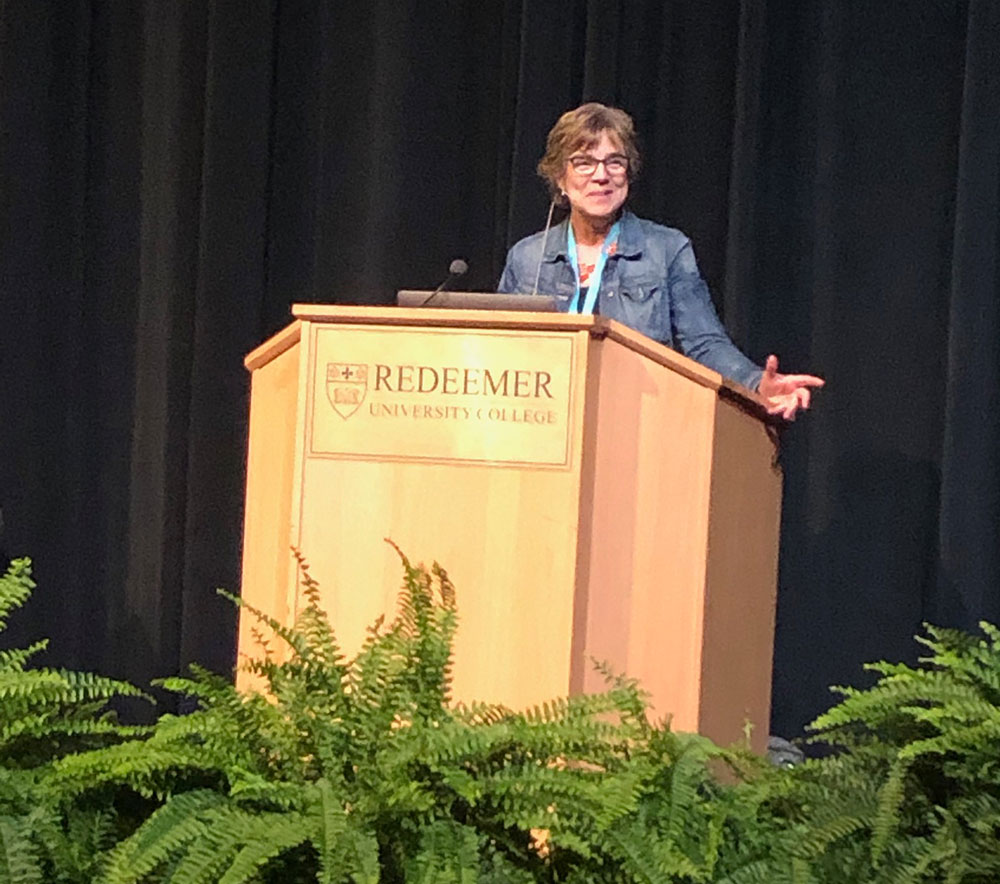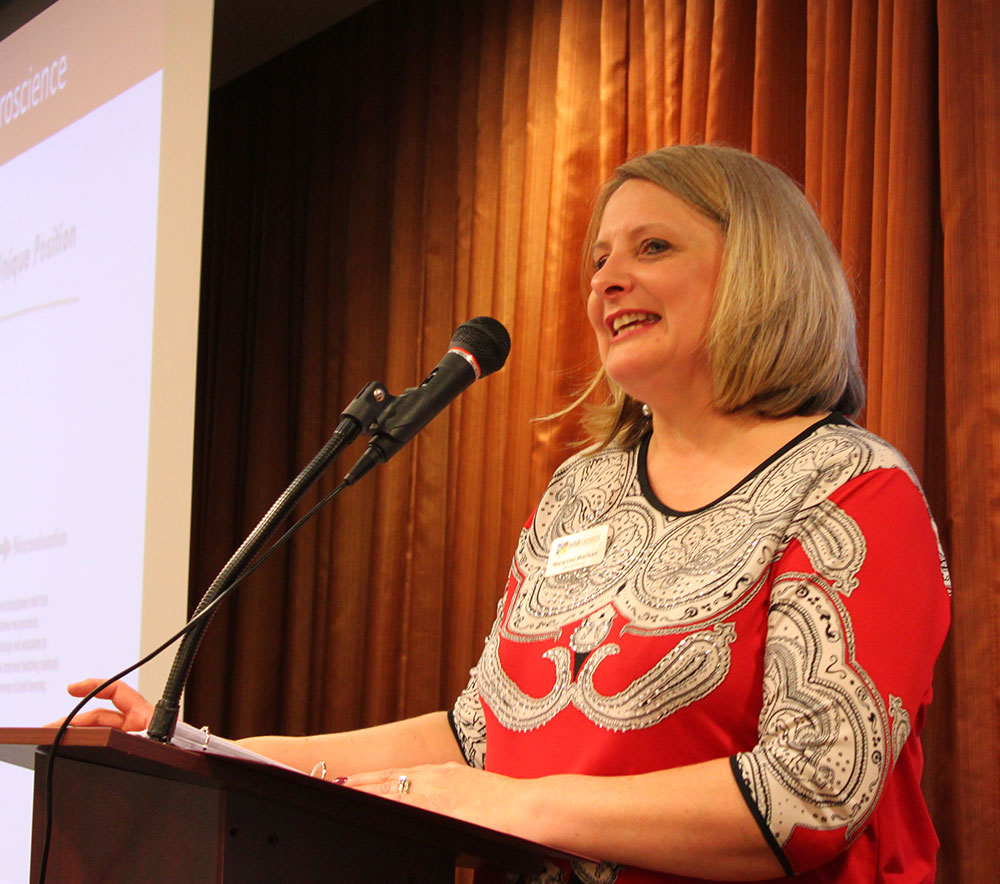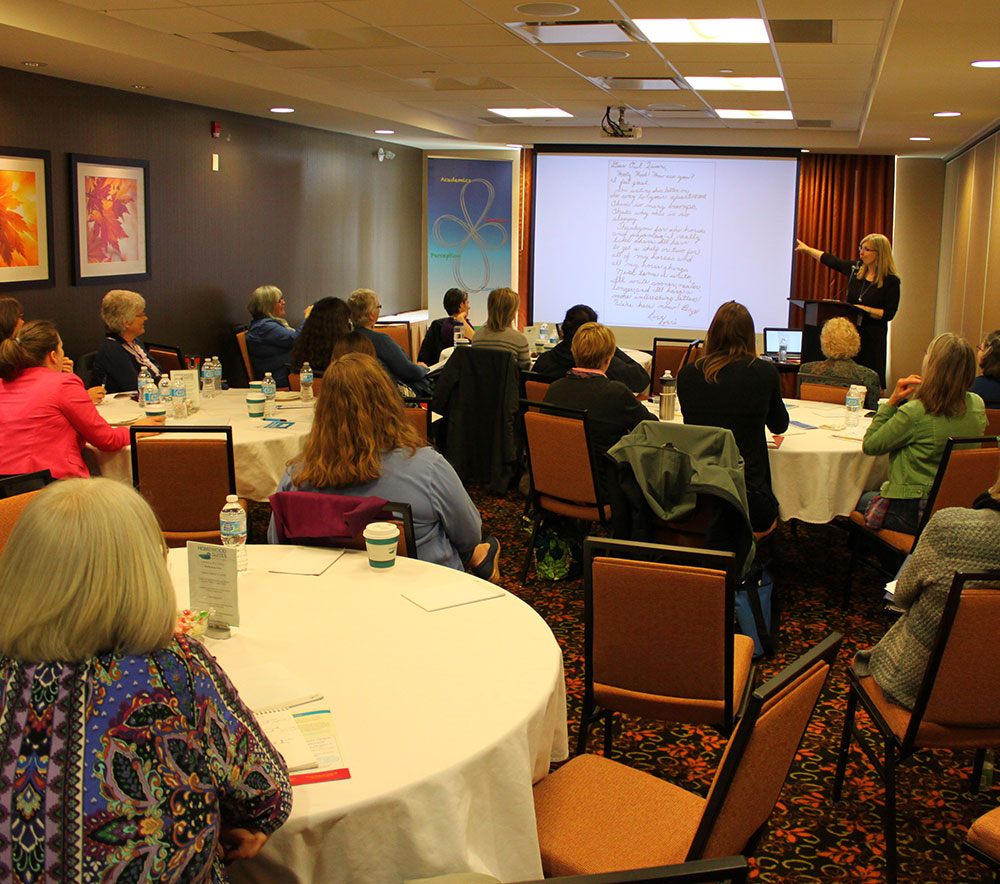Professional Development
What We Offer
Are you an educator who would like…
- to improve your ability to ask questions and stimulate thinking in your classroom?
- to gain strategies to improve your students’ ability to think, reason, and process information?
- to better meet the needs of your most vulnerable students?
- tools to strengthen students’ skills in reading, spelling, math, and written expression?
- to be a part of producing competent and confident learners in your classroom and beyond?
As a training institution in the field of special education, we offer a variety of professional development opportunities for educators and parents.

As a training institution in the field of special education, we offer a variety of professional development opportunities for educators and parents.

In-Service Workshops
Our training team is available to provide professional development workshops for your school, centres or organization. These workshops will help to build an understanding of the impact of learning differences in various educational settings and to provide strategies for working with students who struggle with learning difficulties.
You can request an individual workshop, a half day program or a full day program, depending on the needs of your school or organization. These workshops are conducted by NILD Professionally Certified Educational Therapists. NILD’s training methods are accredited by the International Dyslexia Association and The Feuerstein Institute.
You may select from the following list or you may request a workshop more specific to your organizational needs. To schedule an in-service or for additional information, please contact us.
NILD Canada Annual Conference
Each spring, we host an annual conference to provide ongoing professional development for NILD Educational Therapists, as well as educators and parents. We want to be a conduit for linking educators to current research that strengthens intervention methods and equips attendees to unlock the learning potential in all students.
Attendees will receive official NILD Canada certificates of attendance that can be used to receive Continuing Education Units (CEUs) to maintain school or professional organization certification requirements.
Check out our Events to find out details on our next conference.

Professional Development Workshops
Does Your Classroom Cultivate Student Resilience?
Booker T. Washington once said, “I have learned that success is to be measured not so much by the position that one has reached in life as by the obstacles overcome while trying to succeed.” Research has established that resilience is essential for a child to be successful. Learn about the different tools every teacher can use in the classroom to promote resilience.
Metacognition: Nurturing Self-Awareness in the Classroom
“Thinking about how one thinks”; is what neuroscientists call metacognition. Studies show that as students’ metacognitive abilities increase, they achieve at higher levels. Self-awareness plays an important role in how a student learns more efficiently. Improving metacognition in
schoolwork also improves a student emotionally and socially. Learn various strategies to implement metacognition learning into your classroom.
Those Inner Voices
The role that inner speech plays in education is significant. Many struggling learners have not developed the ability to self talk, creating impulsivity and comprehension difficulties. A teacher who is competent in the skills of questioning can influence a student’s ability to develop inner language.
Giftedness and Twice Exceptional Children
This workshop discusses two topics which often intersect as well. Learn how to identify giftedness in a student as well as students who may be gifted along with having a learning disability. We will discover how to work with gifted students in the classroom including motivational techniques, as well as helping them deal with the emotional quotient. Learn how to identify twice-exceptionality in a student and find a good educational fit for them in the classroom. We will unpack topics such as communication, underachievement, self-management, perfectionism, peer relations, interventions for learning disabilities and how to find professional helps.
The Digital Age – How Technology is Affecting the Cognitive, Mental Health and Future of our Children
The effects of technology on children are perplexing, with both positive and negative outcomes. Whether technology supports or hinders the development of your child’s thinking is dependent upon many variables and research is slowly providing answers. We will take a deep dive into how cognition, executive functions, behaviour, mental health, and physical well-being are affected by screen time in the lives of our children.
Executive Function – Air Traffic Control
Executive function strategies are an important foundation for helping children grow and develop their academic skills as well as building their confidence levels. Students who recognize how to use these strategies in working with their weaknesses and strengths also see improved grades. Learn how to implement and build an executive function culture in your classroom and how to foster strategies that will create confident and resilient students which create open gateways to success.
Upstairs, Downstairs, the Whole-Brained Child
Emotional intelligence and working memory are two aspects of executive function which play key roles in the “upstairs” brain of a child when making decisions and balancing emotions. In this workshop we will investigate the completed meta-analysis of evaluation studies showing improved academic accomplishments linked to strategic programs that train in social and emotional learning. Learn how to implement these learning strategies to create enriched classrooms and enhance struggling learners.
ADHD: Disease, Delayed Development or Something Else?
Statistics today indicate that 5-15% of school-aged children, and even more adults, are affected by ADHD. But what truly is ADHD? Are there other conditions that mimic the ADHD symptoms or affect it? How do these symptoms impede students’ academic performance or social well-being? This workshop will help you identify challenges that these students face and find strategies and therapeutic solutions to support them.
Accommodations or Modifications: How to Create Effective Classrooms for Struggling Students
In this workshop we will explore real examples of accommodations and modifications for students with learning challenges. Participants will learn about the role of accommodations and modifications and the differences between each, as well as the tools and strategies that can assist both parents and educators. We will also give instructions on how to implement the IEP in the classroom and how to connect IEP expectations with report cards.
Rx for the Three R’s: Small Group Intervention
Some of our students just need a boost to give them the competence and confidence they need to get caught up to the rest of the class. These small group ‘Rx-prescriptions’ will help students discover new concepts using the Socratic method of questioning and mediation – all within the safety and with the benefits of a small group. Rx 4 Math helps students build and strengthen their number sense, math vocabulary, and problem-solving strategies. Rx for Reading builds and strengthens the 5 pillars of language into a language brain. Rx for Writing builds and strengthens grammar and writing mechanics. In this workshop, we will discuss how educators can train in this method to help students succeed!
Workshop Fees
Workshop: $350.00 (1 session)
Half day: $650.00 (2 sessions), $950.00 (3 sessions)
Full day: $110.00 (4 sessions)
Please note:
- Travel and accommodation costs are not included
- Sessions are 60-75 minutes in length

About Our Presenter
Mary-Lou Maclean, M.S., PCET, CDT
Executive Director, NILD Canada
Mary-Lou’s passion is helping struggling learners reach their full potential. For 25 years, she has taught children and adults in the field of education – high school, college, and as an educational therapist. Mary-Lou has continued her passion for education and, since 2004, has been training educators and parents at conferences, schools and in NILD Canada’s summer graduate program. She continues her quest for learning and providing research-based practices to support students’ thinking abilities.
Expand your professional toolbox!
Learn new strategies for supporting your students.
